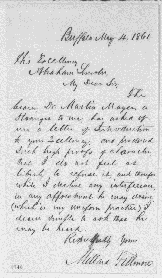
This is taken from Routledge's Manual of Etiquette, late 19th century.
Do not lightly give or promise letters of introduction. Always remember that when you give a letter of introduction you lay yourself under an obligation to the friend to whom it is addressed. If he lives in a great city, such as Paris or London, you in a measure compel him to undergo the penalty of escorting the stranger to some of those places of public entertainment in which the capital abounds. In any case, you put him to the expense of inviting the stranger to his table. We cannot be too cautious how we tax the time and purse of a friend, or weigh too seriously the question of mutual advantage in the introduction. Always ask yourself whether the person introduced will be an acceptable acquaintance to the one to whom you present him; and whether the pleasure of knowing him will compensate for the time or money which it costs to entertain him. If the stranger is in any way unsuitable in habits or temperament, you inflict an annoyance on your friend instead of a pleasure. In questions of introduction never oblige one friend to the discomfort of another.
Those to whom letters of introduction have been given should send them to the person to whom they are addressed, and enclose a card. Never deliver a letter of introduction in person. It places you in the most undignified position imaginable, and compels you to wait while it is being read, like a footman who has been told to wait for an answer. There is also another reason why you should not be yourself the bearer of your introduction; i.e., you compel the other person to receive you, whether he chooses or not. It may be that he is sufficiently ill-bred to take no notice of the letter when sent, and in such case, if you presented yourself with it, he would most probably receive you with rudeness. It is, at all events, more polite on your part to give him the option, and perhaps more pleasant. If the receiver of the letter be a really well-bred person, he will call upon you or leave his card the next day, and you should return his attentions within the week.
If, on the other hand, a stranger sends you a letter of introduction and his card, you are bound by the laws of politeness and hospitality, not only to call upon him the next day, but to follow up that attention with others. If you are in a position to do so, the most correct proceeding is to invite him to dine with you. Should this not be within your power, you have probably the entree to some private collections, clubhouses, theatres, or reading-rooms, and could devote a few hours to showing him these places. If you are but a clerk in a bank, remember that only to go over the Bank of England would be interesting to a foreigner or provincial visitor. In short, etiquette demands that you shall exert yourself to show kindness to the stranger, if only out of compliment to the friend who introduced him to you.
If you invite him to dine with you, it is a better compliment to ask some others to meet him, than to dine with him tête-à-tête. You are thereby giving him an opportunity of making other acquaintances, and are assisting your friend in still further promoting the purpose for which he gave him the introduction to yourself.
Be careful at the same time only to ask such persons as he will feel are at least his own social equals.
A letter of introduction should be given unsealed, not alone because your friend may wish to know what you have said of him, but also as a guarantee of your own good faith. As you should never give such a letter unless you can speak highly of the bearer, this rule of etiquette is easy to observe. By requesting your friend to fasten the envelope before forwarding the letter to its destination, you tacitly give him permission to inspect its contents.
Let your note paper be of the best quality and the proper size. Albert or Queen’s size is the best for these purposes.
It has been well said that “attention to the punctilios of politeness is a proof at once of self-respect, and of respect for your friend.” Though irksome at first, these trifles soon cease to be matters for memory, and become things of mere habit. To the thoroughly well-bred, they are a second nature. Let no one neglect them who is desirous of pleasing in society; and, above all, let no one deem them unworthy of a wise man’s attention. They are precisely the trifles which do most to make social discourse agreeable, and a knowledge of which distinguishes the gentleman from the boor.
Copyright © D. J.McAdam· All Rights Reserved